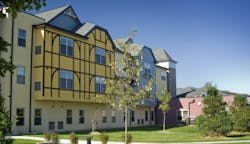CBRE: Senior housing industry shifts its focus from real estate to business
According to a CBRE expert, the senior housing industry is transitioning from a real estate industry with a business component to a business-focused industry with a real estate component.
Zach Bowyer, MAI, the National Practice Leader for CBRE’s seniors housing & healthcare specialty practice, said in a statement that “seniors housing is different from most other real estate types because the value is largely contingent on operations. Still, lenders and investors are typically most interested in the real estate when deciding whether or not to provide capital.”
The seniors housing sector finished 2015 with 514 institutional transactions closed and $18.7 billion in institutional sales. Last year was a banner year for the sector, which also experienced record high per-unit pricing and record low capitalization rates.
With seniors housing cap rates averaging at a spread of 518 basis points (bps) to the 10-year Treasury, and with returns reported at 16.3%, 14.8%, and 13.3% over a one-, five- and 10-year period, investors are looking to get into the game. CBRE said that 58% of respondents to the CBRE Seniors Housing Investor Survey & Market Outlook indicated that they were looking to increase their exposure in the market.
“The seniors housing landscape is evolving with the increased presence of sophisticated capital, market transparency, operational efficiencies and technological advances. This can be compared to the institutionalization that the multifamily sector experienced from the mid-1990s to early 2000s,” Bowyer said. “As the seniors housing industry evolves, it is imperative that our valuation methodologies, access to accurate information and understanding of our clients’ needs continue to evolve in step.”
